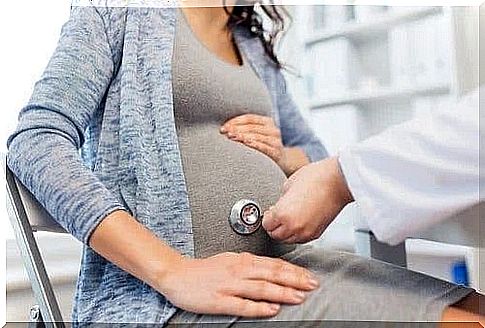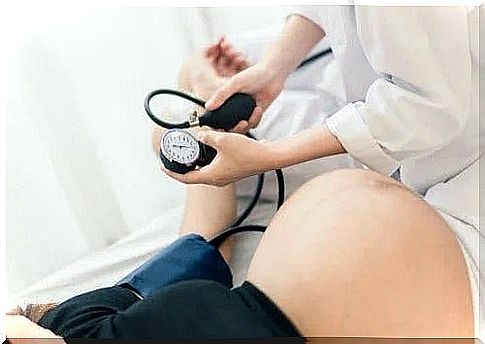What Causes Abdominal Pain In Pregnancy?

Abdominal pain in pregnancy is a cause for concern for mothers and, in fact, is the main reason for medical visits. In this article, we will tell you why this discomfort occurs, how you can alleviate it and when it is necessary to go to the hospital.
Abdominal pain in pregnancy
Abdominal pain during pregnancy is quite common and occurs due to changes in the body of women during pregnancy. This usually does not mean that the baby is in danger.
In general, abdominal pain in pregnancy occurs due to the growth of the baby in the abdomen and, in many cases, goes away on its own. Below, we will tell you what the possible causes are.
The main causes
1. Gas accumulation

Increased progesterone levels produce muscle relaxation and slow down the digestive system, a phenomenon associated with gas accumulation. In addition, in the third trimester of pregnancy, the baby is so large that it presses on the stomach, affecting digestion. For this reason, in the last months of pregnancy, discomforts such as heartburn or indigestion are more common.
In addition, constipation can cause flatulence and this, in turn, triggers colic. In fact, the accumulation of feces, which are not easy to eliminate, can also make it difficult to eliminate gas. This can lead to discomfort.
The round ligament is the one that connects the uterus and the groin area. As the uterus stretches to make room for the baby, various discomforts can occur, from sharp and intermittent pain to persistent and annoying pain.
Round ligament pain usually occurs in the second trimester and tends to affect the hip or abdomen of the pregnant woman. Posture changes, coughing or even laughter can trigger discomfort.
3. Braxton Hicks contractions

In the second half of pregnancy, the famous Braxton Hicks contractions, also called “training contractions” , often occur. Although they are annoying, they are not dangerous. In fact, your body produces them to gradually prepare you for birth.
Braxton Hicks contractions often feel like a tightening of the intestines. The stomach becomes firm and hard as a rock. But they do not cause pain, but simply discomfort.
Digestive problems such as sensitivity to certain foods, urinary tract infections, kidney stones or stomach viruses can cause temporary abdominal pain. Pay attention to these symptoms and treat them properly under medical supervision.
How to eliminate abdominal pain in pregnancy

When should I go to the hospital

Between 13 and 20 weeks of pregnancy, severe abdominal pain may indicate a miscarriage. In other words, for some reason, the fetus does not continue to develop and is expelled from the body in the form of bleeding.
If you are in this sad situation, it is important to go to the doctor for control and take the necessary precautions to protect your health and allow a future pregnancy.
The placenta provides the baby with oxygen and food through the umbilical cord. When this condition occurs, the placenta separates completely or partially from the wall of the uterus. It becomes difficult for the baby to get the oxygen and nutrients he needs to continue his development.
Sudden and constant abdominal pain, accompanied by general malaise, may be a sign of this disease. In some cases, vaginal bleeding is seen. At other times, blood is trapped behind the placenta and therefore bleeding does not occur.
The prevalence of abrupt placenta is 1 in 100 pregnancies. Therefore, at the slightest doubt, consult your doctor. This condition can cause premature labor or the birth of a stillborn baby.
4. Preeclampsia

6. Labor
If you have contractions, go to the hospital because it may be time for birth! You will feel these contractions in the back. From there, it radiates to the lower abdomen. In addition, they become more intense and regular over time, accelerating and increasing their duration.
In short, abdominal pain during pregnancy is not usually a symptom of a serious illness. If in doubt or if you feel weak, tired or have a fever, consult your doctor.









